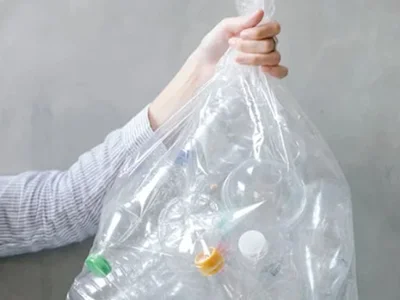Top Guidelines Of Reclaim Waste
Table of Contents6 Simple Techniques For Reclaim WasteSome Known Facts About Reclaim Waste.Some Ideas on Reclaim Waste You Should KnowThe Buzz on Reclaim WasteWhat Does Reclaim Waste Mean?
Discover the types, occurrences, and kinds of fluid waste. Domestic sewer waste describes the waste and products from a domestic sewage-disposal tank. This sort of waste is produced by humans in homes, colleges, and other structures. This only includes sewage-disposal tanks that have a drain field. The correct management and disposal of domestic sewage waste need fluid waste to be transferred to a sewer treatment plant where the correct techniques and tools are related to purify and throw away waste.
Business waste commonly consists of potential dangers, such as combustible materials or a blend of fluid and solid waste items, and calls for a more sophisticated and comprehensive disposal process. The disposal of business waste typically includes the filtering of waste prior to transport to ensure risk-free and appropriate disposal. Hazardous waste is created from byproducts and runoff of industrial processes and production.
This sort of waste can not use the same sewage management transportation or processes as septic or commercial liquids. The hazardous waste management process requires the assessment and screening of liquid waste before it goes through the disposal process (industrial wastewater treatment). Drainage waste is the fluid waste that originates from drainage and excess stormwater in very booming locations or cities
Runoff waste can cause contamination and flooding if not handled appropriately. Discover more regarding sewer cleansing and waste management. Making certain proper waste administration can prevent catastrophes and reduce ecological harm. Both individuals in residential settings and professionals in business or production industries can benefit from recognizing the procedures and laws of fluid waste management.
Some Known Facts About Reclaim Waste.
Call PROS Services today to learn regarding our waste monitoring and disposal solutions and the correct methods to look after the liquid waste you generate.
(https://www.imdb.com/user/ur191403836/?ref_=nv_usr_prof_2)Do you understand what occurs to your water when you end, purge the toilet or drain pipes the washing equipment? No? Well, it's worth recognizing. This so-called 'wastewater' is not just a crucial resource however, after treatment, will certainly be released to our land, rivers or the ocean. Utilized water from toilets, showers, bathrooms, kitchen sinks, laundries and commercial processes is recognized as wastewater.

water utilized to cool down machinery or clean plant and tools). Stormwater, a type of wastewater, is drainage that flows from farming and urban areas such as roofs, parks, gardens, roadways, paths and seamless gutters into stormwater drains pipes, after rainfall. Stormwater streams neglected straight to local creeks or rivers, ultimately getting to the ocean.
The Best Strategy To Use For Reclaim Waste
In Queensland, the majority of wastewater is dealt with at sewer treatment plants. Wastewater is delivered from residential or industrial sites via a system of sewers and pump terminals, known as sewerage reticulation, to a sewer therapy plant.
The Division of Natural Resources suggests city governments concerning handling, operating and keeping sewerage systems and treatment plants. In unsewered locations, local federal governments might call for owners to mount private or family sewer treatment systems to deal with residential wastewater from commodes, cooking areas, washrooms and washings. The Department of Natural Resources authorises making use of house systems when they are confirmed to be reliable.
A lot of stormwater receives no therapy. In some brand-new class, treatment of some stormwater to get rid of clutter, sand and gravel has started utilizing gross pollutant catches. Wastewater treatment occurs in 4 stages: Gets rid of strong matter. Bigger solids, such as plastics and various other objects incorrectly discharged to sewers, are eliminated when wastewater is travelled through displays.
Makes use of tiny living organisms understands as micro-organisms to damage down and remove continuing to be liquified wastes and fine bits. Micro-organisms and wastes are integrated in the sludge.
Reclaim Waste - Truths
Nutrient elimination is not readily available at all sewer therapy plants due to the fact that it requires expensive specialised devices. Clear fluid effluent created after treatment might still contain disease-causing micro-organisms - liquid waste disposal.

Most wastewater streams into the sewerage system. Under the Act, neighborhood governments carry out approvals and permits for environmentally pertinent activities (Periods) including wastewater launches that may have a local impact.
A Biased View of Reclaim Waste
Or else, examples are taken for lab evaluation. Typically lots of examinations are needed to establish the levels of each of the different toxins such as oils, heavy visit homepage steels and chemicals in water. Monitoring offers accurate details concerning water quality and can confirm that permit problems are being met. The information obtained with tracking supplies the basis for making water high quality choices.